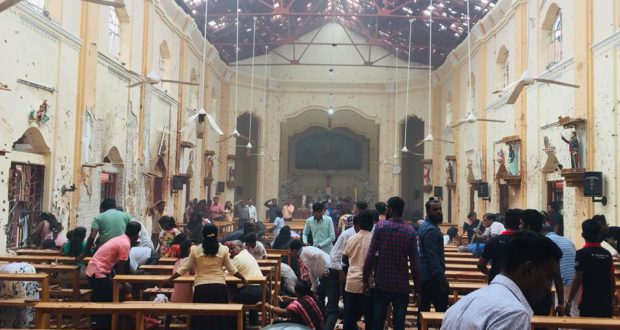Every terror attack across the globe invariably finds links with the terror factory in our neighbourhood, Pakistan. It does not come as much of a surprise that the Easter bomb blasts in Sri Lanka reveal a clear link with Pakistan. One of the suicide bombers, Zahran Hashim, an extremist Islamist imam is believed to have visited Pakistan in 2018. Hashim was involved with the National Thowheeth Jamaath, an organisation which was known in Sri Lanka for demolishing Buddhist statutes and also harbouring the larger ambition of spreading global jehad.
Islamic extremism is not a new phenomenon in Sri Lanka. As per Sahiba Hasan, a Karachi based researcher, in the 1940s when Indian Muslims “demanded a separate homeland for themselves, Sri Lankan Muslims supported their struggle”. The Sri Lankan Muslims were supporting a separate homeland for the Indian Muslims without having any stake in the issue.
Sri Lankan politicians seem not to have realised the flip side of the extra-territorial loyalties of its Muslim population. The heads of state of Sri Lanka and Pakistan exchanged regular visits. In 1954, the then Sri Lankan Prime Minister John Kotelawala had said in Islamabad, “We were so close to each other. We should know each other better and try to help each other.” The proximity between the two countries came to light once again during the 1971 Bangladesh crisis. Finally, the ISI and Pakistani military got the chance of gaining foothold in the island nation during the civil war involving the LTTE. And once the ISI came into the picture, it opened up the possibility of terrorism picking up in Sri Lanka. During the days of LTTE dominance, it was not possible for the ISI to gain a foothold by fanning communal hatred within the Muslim minority in the island nation. However, once the LTTE was eliminated, ISI was free to move in.
The warning signs of Islamic terrorism picking up in Sri Lanka had emerged in 2016 itself when 32 of its elite Muslims joined the Islamic State. In fact, in 2014, the NIA was tasked with investigation of a case in connection with Amir Zubair Siddiqui, a top official in the Pakistan High Commission in Sri Lanka, who had been sent by the ISI to set up modules and target the southern parts of India. After the arrest of two persons trained and funded by Siddiqui, the NIA came across certain shocking details. It was found that Bodu Bala Sena (BBS), an organisation fighting for Buddhist dominance was funded heavily by the ISI. The BBS was supposed to target the Muslim minority, which in turn made the Sri Lankan Muslims insecure and that insecurity was what the ISI was looking to capitalise on. The ISI led by Siddiqui was able to make use of the resentment among Muslims rope many of them into its fold.
It is clear that the ISI is the main culprit behind the Easter blasts in the island nation. It is time Sri Lanka revisited its Pakistan policy. At a time, when Pakistan is being seen as a terror factory across the globe, Sri Lanka cannot really afford close ties with the terrorist country. Sri Lanka should consider co-operating closely with India and fighting the common enemy in Pakistan sponsored terror outfits.

























